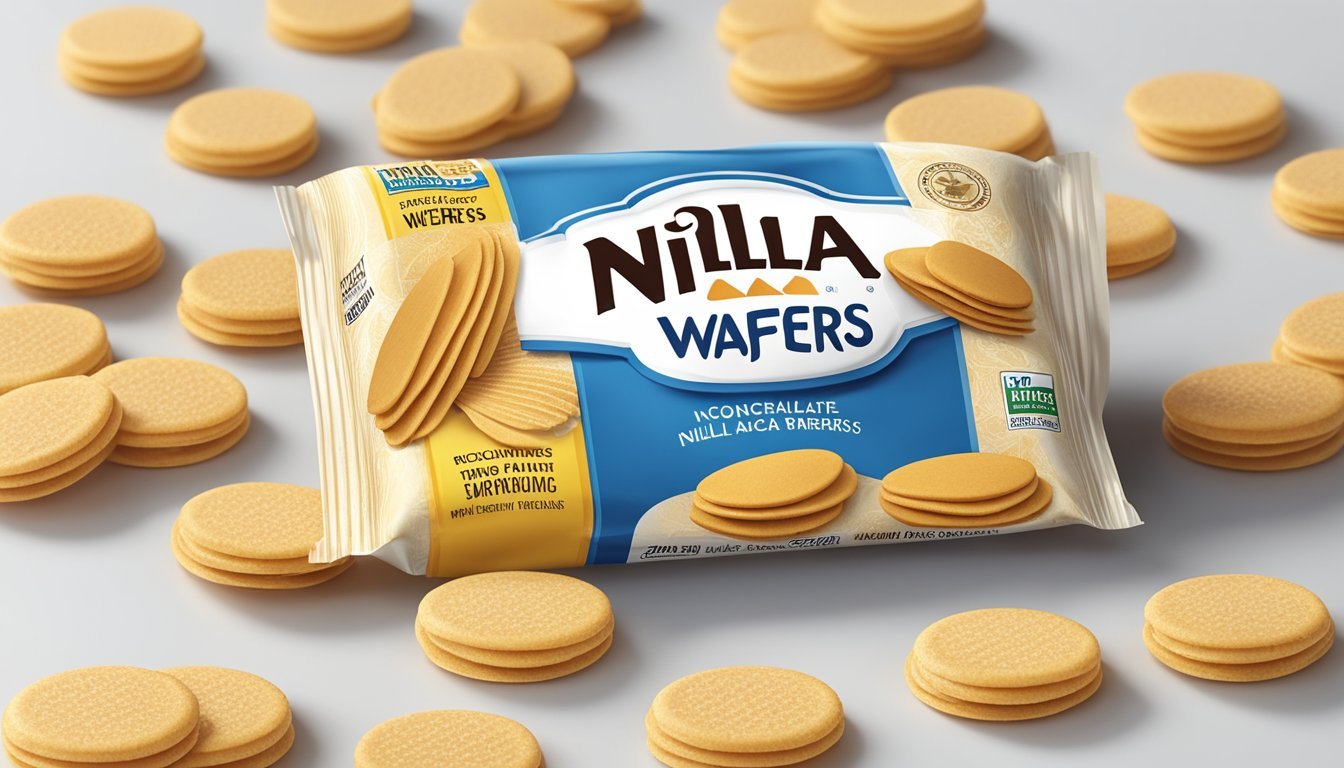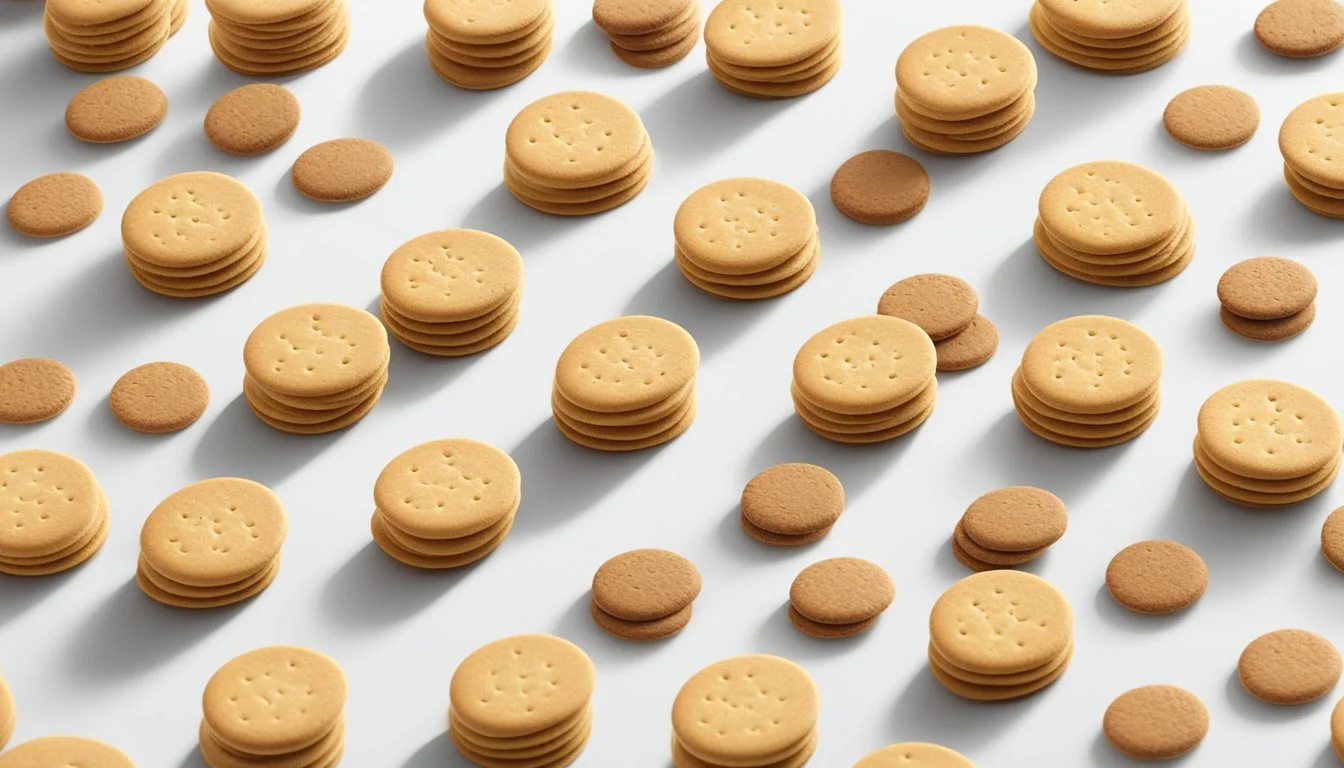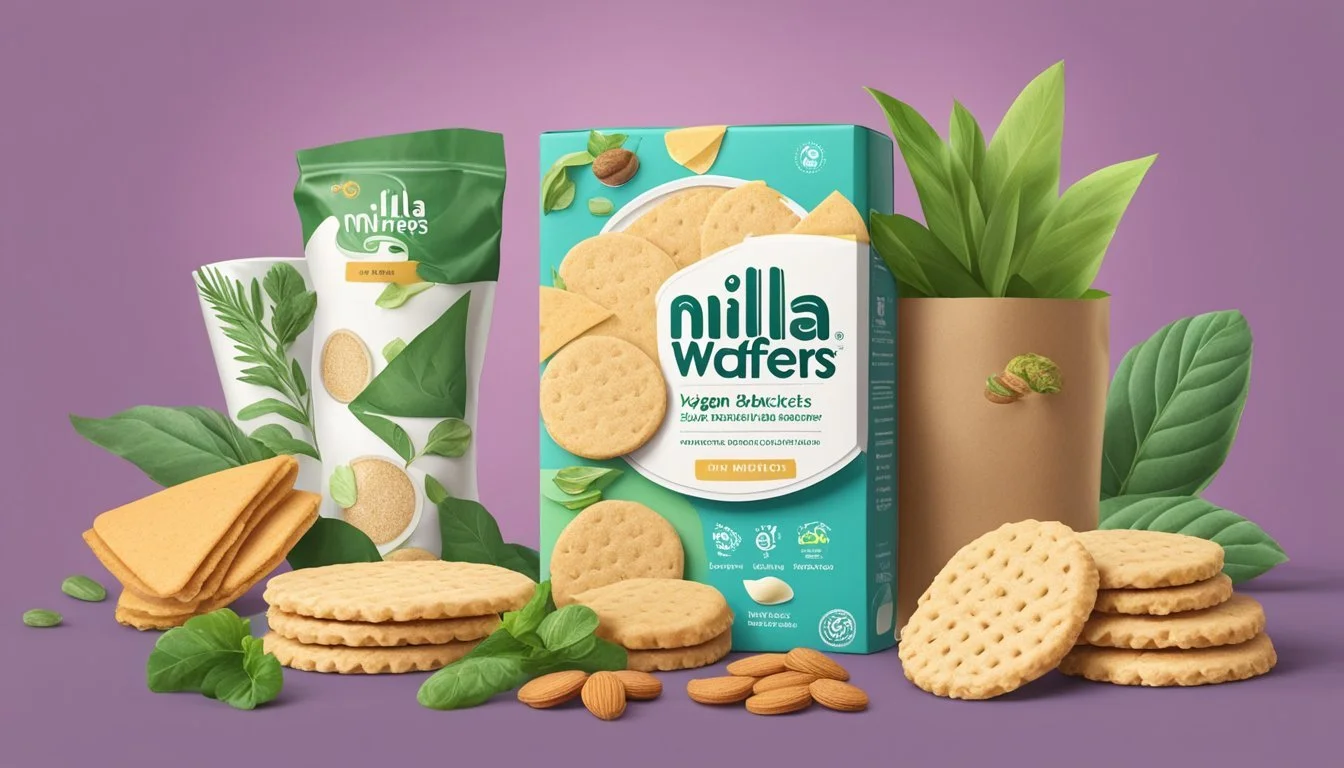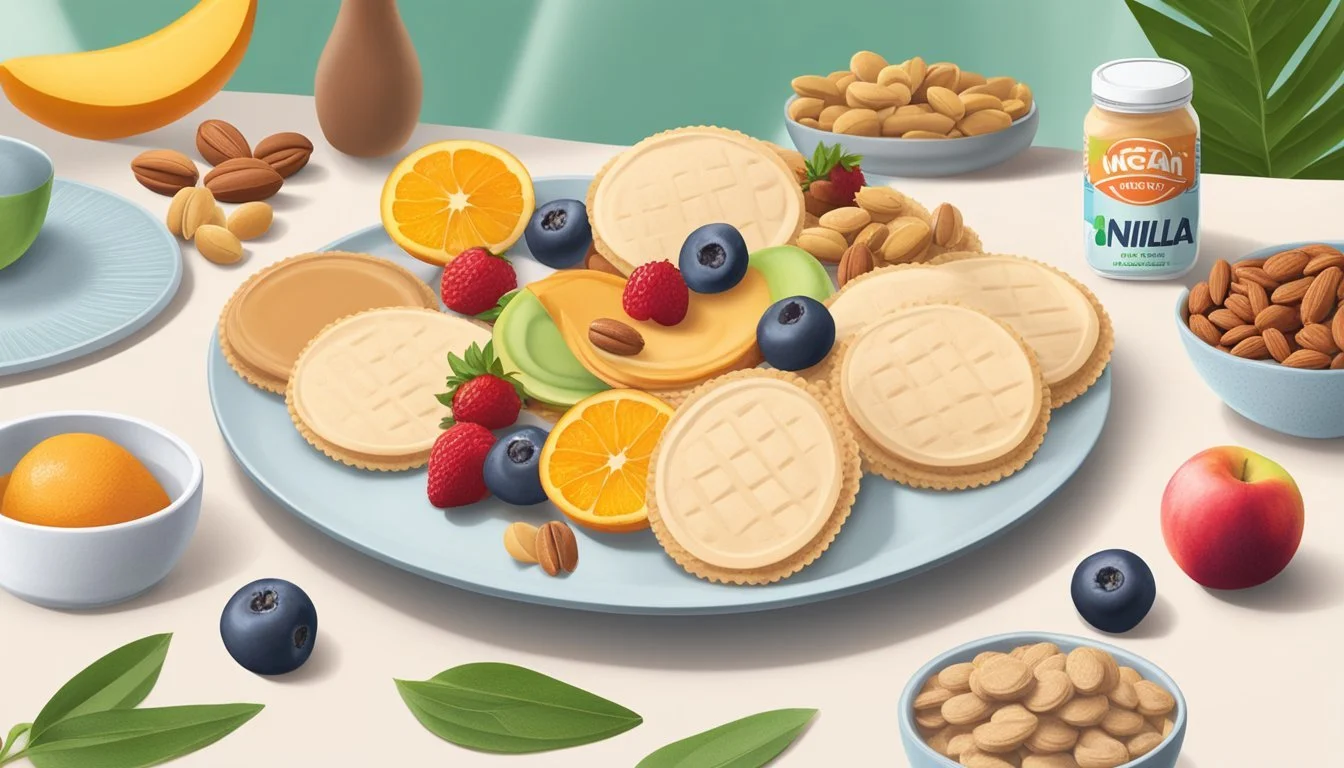Are Nilla Wafers Vegan?
Uncovering the Ingredients List
Nilla Wafers, a staple in American pantries, are often sought after by those following a vegan diet seeking to enjoy classic treats without compromising their ethical or dietary choices. At the heart of the inquiry into whether Nilla Wafers are vegan lies the scrutiny of their ingredients. These light and crispy cookies commonly contain milk derivatives such as whey and nonfat milk, and they may also include eggs. These ingredients are unequivocally animal-derived, making the traditional Nilla Wafer recipe non-vegan.
In response to growing consumer demand for plant-based alternatives, some manufacturers have begun offering vegan-friendly versions of vanilla wafers. These alternatives eschew traditional animal-based components in favor of plant-based substitutes like non-dairy milk and vegan butter, allowing vegans to enjoy a similar product. The vegan variant of the iconic vanilla-flavored wafer can be made or purchased without sacrificing taste or texture, provided that the ingredient list is thoroughly vetted for any hidden animal-derived substances.
What Are Nilla Wafers?
Nilla Wafers are a brand of light, sweet vanilla-flavored cookies produced by Nabisco. Known for their crisp texture and distinctive taste, these cookies have been a staple in American households as both a snack and a key dessert ingredient, particularly in recipes like banana pudding.
History of Nilla Wafers
Nilla Wafers were first introduced by Nabisco in 1898 under the name "Vanilla Wafers." Over the years, they became synonymous with Nabisco's brand, and the name was eventually changed to "Nilla Wafers." Their simple yet versatile flavor profile has allowed them to endure as a beloved snack for generations. They have not only served as a stand-alone treat but have also played a pivotal role in various dessert recipes, cementing their legacy in American dessert culture.
Nilla Wafers in Popular Culture
Nilla Wafers have a significant presence in popular culture, often referenced in relation to nostalgic childhood experiences or their use in home-style desserts. Banana pudding, a classic Southern dessert, traditionally uses Nilla Wafers layered between slices of bananas and custard or vanilla pudding. This particular dessert has amplified the cookie's fame, making it an indispensable part of the dish. Beyond just a kitchen staple, Nilla Wafers have been mentioned in television shows, books, and movies, highlighting the brand's widespread recognition and appeal.
Ingredients Analysis
The ingredients in Nilla Wafers provide insight into whether they align with a vegan lifestyle. This analysis will identify the main components, highlight animal-derived ingredients, and explore plant-based alternatives.
Main Ingredients in Nilla Wafers
Nilla Wafers are primarily composed of the following ingredients:
Flour: Typically, unbleached enriched flour is used, containing wheat flour and calcium phosphate.
Sugar: May include granulated sugar, which sometimes undergoes a refining process using bone char.
Oil: Often palm oil, which raises concerns about sustainability and ethical sourcing.
Leavening agents: Such as baking soda to ensure the light and airy texture.
Animal-Derived Ingredients
Key non-vegan ingredients found in Nilla Wafers are:
Milk: Both whey and nonfat milk are used, sourced from dairy animals.
Eggs: They may be included in the recipe to bind ingredients and add richness.
Whey: A protein derived from milk during the cheese-making process, frequently used as an additive in food products.
Animal-derived ingredients contradict the vegan principle of excluding all forms of exploitation of, and cruelty to, animals for food, clothing or any other purpose.
Plant-Based Alternatives
Vegan-friendly substitutes for these ingredients include:
Milk: Plant-based milks like almond, soy, or oat milk can replace dairy milk.
Eggs: Flaxseeds, chia seeds, or commercial egg replacers offer similar binding properties.
Whey: Pea protein or other plant-derived proteins can be used.
While considering replacements, attention must be paid to the role each ingredient plays in the final product's taste and texture.
Understanding Veganism
When delving into whether Nilla Wafers are vegan, it's crucial to understand the core principles of veganism, which encompass both the dietary and ethical considerations involved in the lifestyle.
Defining Vegan Products
Vegan products are those that contain no animal-derived ingredients. A product considered vegan is free from:
Meat
Dairy (such as milk or cheese)
Eggs
Honey
Gelatin (often sourced from animal collagen)
Additionally, veganism extends to a product's production process, which must not involve any form of animal testing or exploitation.
Ethical and Dietary Motivations
Individuals adopt veganism for various reasons, generally grouped into two categories:
Ethical
Concern for animal welfare and rights
Opposition to industrial farming practices
Dietary
Plant-based diets may reduce the risk of certain health conditions
Belief in the environmental benefits of reducing animal product consumption
Veganism is more than a diet; it's a lifestyle choice driven by these motivations. In assessing whether a food like Nilla Wafers aligns with veganism, one must scrutinize its ingredients and the practices behind its production.
Are Nilla Wafers Vegan Friendly?
In assessing whether Nilla Wafers are compatible with a vegan diet, the focus is on their ingredient composition. Two primary areas of concern are the presence of dairy and eggs, as well as other contentious ingredients that could be derived from animal sources or raise debate within the vegan community.
Scrutinizing Nilla Wafers' Vegan Status
Upon examination of the ingredient list, Nilla Wafers are not vegan-friendly due to the inclusion of dairy in the form of whey and nonfat milk, and also eggs. These are standard inclusions for creating the texture and taste that Nilla Wafers are known for, but they are clear indicators that Nilla Wafers contain animal products.
Controversial Ingredients in Nilla Wafers
Aside from the obvious non-vegan ingredients, Nilla Wafers contain refined sugar, which is a point of contention in the vegan community due to the potential use of bone char in its processing. Mono- and diglycerides, which often appear in baked goods, can also be derived from animal fats, making them questionable for vegans. Because quality can include the ethical consideration of ingredient sourcing, these factors contribute to the conclusion that Nilla Wafers do not meet the criteria for being vegan-friendly.
Homemade Vegan Variants
Creating vegan-friendly versions of classic treats like Nilla Wafers at home is a straightforward task. These homemade variants cater to a plant-based diet without compromising on taste or texture.
Vegan Recipe Alternatives
Popular substitutions for dairy and eggs in vegan baking include plant-based butters and non-dairy milks. Commonly, vegan butter or coconut oil serves as a fat source, while almond milk, soy milk, or any other non-dairy milk can replace cow's milk. For structure and binding, which eggs normally provide, alternatives like banana purée or flaxseed mixed with water can be used.
For the dry ingredients in a vegan vanilla wafer recipe, one might use a mix of white rice flour, potato starch, and a touch of xanthan gum to provide the necessary structure and create a gluten-free option. Monocalcium phosphate is often part of baking powder formulations, which, along with baking soda, helps the cookies rise and achieve a crisp texture.
Dry Ingredients:
White rice flour
Potato starch
Baking soda
Salt
Vegan sugar
Wet Ingredients:
Vegan butter or coconut oil
Non-dairy milk (e.g., almond milk, soy milk)
Vanilla extract
Baking Vegan Nilla Wafers at Home
When preparing to bake homemade vegan vanilla wafers, one should preheat the oven to the recommended temperature, which is typically between 325°F (163°C) and 350°F (177°C). Combine the dry ingredients thoroughly before creaming the vegan butter and sugar together until light and fluffy. Then, gradually add the non-dairy milk and vanilla extract.
Once the dough is prepared, it can be rolled out thin and cut into desired shapes. They are then baked until golden brown. It is critical to allow the wafers to cool properly, as this step is crucial to achieving the signature crispness.
Baking Instructions:
Preheat your oven.
Mix dry ingredients.
Cream vegan butter and sugar.
Add non-dairy milk and vanilla extract.
Roll, cut shapes, and bake.
Cool the wafers to crisp up.
Following this method provides a vegan alternative for those seeking to enjoy a vanilla-flavored treat in alignment with their dietary choices. Homemade vegan nilla wafers can be tailored to various preferences, ensuring a delightful result that adheres to vegan standards.
Vegan Desserts and Nilla Wafers
When exploring the world of vegan desserts, the question often arises about iconic treats like Nilla Wafers and their compatibility with a plant-based diet. Traditional Nilla Wafers are not vegan-friendly as they contain animal-derived ingredients such as whey, nonfat milk, and eggs. These contribute to the texture and flavor that many people love.
However, vegan versions of this popular dessert can be crafted by substituting animal products with plant-based alternatives. Vegan butter can replace dairy butter, offering a similar richness. Instead of eggs, flax eggs—that mix ground flax seeds with water—serve as a binding agent.
Here's a quick guide to making vegan Nilla Wafers:
Cream together vegan butter and sugar for a smooth consistency.
Gradually add non-dairy milk, such as soy or almond milk, along with natural flavor extracts like vanilla to achieve the nostalgic taste.
Combine dry ingredients in a separate bowl, ensuring there are no lumps.
Mix dry and wet ingredients to form the cookie dough.
Bake until the edges are golden, ensuring that the cookies have the desired crunch.
It's important for consumers to scan ingredient lists for hidden animal products when seeking vegan-friendly options. Some store-bought varieties may appear to be vegan at a glance, but may still contain non-vegan sugar or palm oil, which some vegans opt to avoid due to ethical concerns. Homemade options provide a more transparent and customizable approach to maintaining a vegan diet while still enjoying a range of dessert flavors and textures.
Shopping for Vegan Nilla Wafers
When one is in search of vegan Nilla Wafers, the primary focus should be on the ingredients and availability in local markets or grocery stores. Ensuring that the selected product is indeed vegan requires careful examination of the ingredients list.
Finding Vegan Nilla Wafers in Stores
Grocery stores often house a variety of brands offering cookies similar to Nilla Wafers. To locate vegan Nilla Wafers, one should begin by visiting natural food markets or grocery stores with a dedicated vegan section. Many vegan-friendly brands might not use the Nilla brand name, but they offer similar vanilla wafers that comply with vegan standards. It is critical to look for products labeled as vegan or with certifications from reputable vegan organizations.
Reading Ingredient Labels
Understanding ingredient labels is vital when shopping for vegan Nilla Wafers. One must meticulously read the list to ensure no animal-derived products like milk, whey, eggs, or butter are included. Other non-vegan ingredients to watch out for include:
Refined sugar: Sometimes processed with animal bone char
Mono- and diglycerides: Can be derived from animal fats
Here's an example of how to scan an ingredients list:
Check for dairy: Ingredients like milk or whey are clear indicators the product is not vegan.
Inspect for eggs: Often used in baking for binding and richness.
Look out for hidden ingredients: Terms like “natural flavors” can sometimes conceal animal derivatives.
Seek vegan certifications: Labels with vegan certifications provide reassurance about the product's compliance with vegan standards.
By attentively inspecting the ingredients list, one can make informed decisions and select a product that aligns with ethical dietary choices.
Consumer Demand and Market Trends
The demand for vegan products has seen a consistent upward trend, reflecting a shift in consumer preferences towards plant-based options. In the cookie market, this trend has manifested in a significant growth of vegan-friendly alternatives, including options for those who traditionally enjoyed Nilla Wafers. Consumers are increasingly seeking out treats that align with their ethical and dietary choices, driving companies to innovate and cater to this plant-based demand.
The market response has been proactive, with an array of companies entering the space to provide high-quality, vegan alternatives to mainstream snacks. These offerings strive to maintain the sensory qualities that customers expect from their confections, ensuring that the taste, texture, and overall enjoyment remain uncompromised.
Key Points:
Growth in Vegan Options: The increased demand for plant-based foods has led to a wider availability of vegan-friendly cookie alternatives.
Quality Maintenance: Companies are focusing on developing products that do not compromise on the quality consumers associate with traditional options like Nilla Wafers.
Market Insight:
Year Trend in Vegan Product Availability Consumer Demand Shift Early 2020s Moderate Increase Gradual Uptick 2023 and beyond Significant Expansion Marked Increase
The vegan market is not isolated; it intersects with the overall health and sustainability trends. Companies like Mondelez International are not only ensuring that products like Nilla Wafers have plant-based alternatives, but they are also aware of the environmental impact and consumer concern for ethical production practices. This comprehensive approach to product development is indicative of a maturing market that is integrating consumer demand into both the tangible product and its ethos.
Conclusion and Verdict
Nilla Wafers, produced by Nabisco, are not suitable for a vegan diet. Evaluated ingredients make this clear: the presence of whey protein, a dairy derivative, and eggs violate vegan principles. While their flavor profile is appealing, with a unique vanilla taste, those with a plant-based sweet tooth must seek alternatives.
For individuals considering nutritional value, it's essential to recognize that the appeal of Nilla Wafers is not rooted in health but in taste. Vegans looking for treats with a similar flavor profile have options. Numerous manufacturers produce vegan-friendly wafers that avoid animal products while still providing that desired crisp texture and sweet vanilla flavor.
In terms of reader interactions, those seeking vegan options are encouraged to thoroughly check ingredient labels. Misleading terms can sometimes obscure animal-derived components. Transparency and careful scrutiny of product details are crucial when selecting suitable vegan snacks.
Frequently Asked Questions
Are Nilla Wafers suitable for a vegan diet?
No, Nilla Wafers are not vegan. They contain dairy products such as whey and nonfat milk, which are derived from animals.
Which non-vegan ingredients are found in Nilla Wafers?
Dairy: Whey and nonfat milk
Eggs: Another common animal-derived ingredient
Can I make vegan Nilla Wafers at home?
Yes, one can prepare vegan Nilla Wafers using substitutes like vegan butter and non-dairy milk (e.g., soy milk) in place of traditional dairy ingredients.
What are the core ingredients in Nilla Wafers?
Processed flour
Sugar (often cane sugar)
Oils
How is the nutritional value of Nilla Wafers?
Nilla Wafers are often considered low in nutritional value, as they are high in sugar and low in protein and fiber. Each serving typically contains a significant amount of sugar.
Do Nilla Wafers contain water-soluble vitamins like riboflavin and thiamine mononitrate?
They may contain vitamins such as thiamine mononitrate (Vitamin B1) and riboflavin (Vitamin B2), as well as folic acid, since these can be present in enriched flour, which is a common ingredient in baked goods.
Are there any concerns with cane sugar used in Nilla Wafers?
Some vegans avoid cane sugar that has been refined using bone char, although not all cane sugar is processed this way. It's important to check the brand's sugar sourcing if this is a concern.








